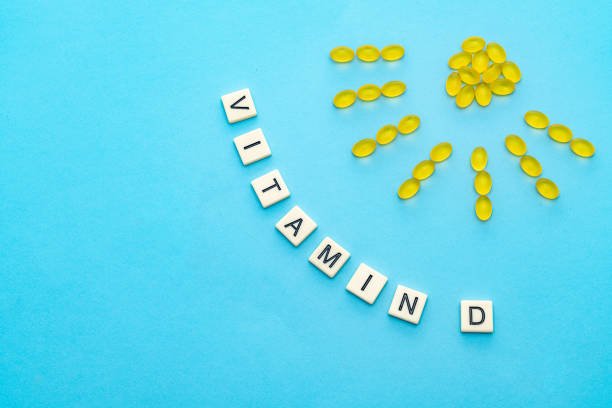Vitamins for Heart Health
It is also just as necessary to look after a healthy heart in order to survive or to live on. Hear diseases are still among the leading causes of death but this article shows that one can strengthen one’s heart muscles through diet and exercise. Certain vitamins also facilitate blood circulation and help avoid danger related to other heart diseases. This article is particularly centered on the topic of vitamins to take for healthy heart, ways in which vitamins for heart health can be used or incorporated into ones lifestyle.
The Importance of Heart Health
Your active heart is a muscular organ that beats vigorously to circulate blood in the body, supplying all human organs with oxygen and other important nutrients. In time, aspects like stress, aging, poor diets, and no exercise contribute to the dilution of your cardiovascular system, thereby raising a genuine possibility of encountering a heart disease. Although getting back to better eating habits is crucial for heart health, taking the needed doses of heart-helping vitamins would also be helpful for a heart.
Adding vitamins for heart health may be good for arterial pressure regulation, for blood vessel walls, and even for cholesterol. Here we will try to describe some of the best vitamins for heart health and how they prevent this crucial organ from being damaged.

Top Vitamins for Heart Health
Vitamin D: The Last Frontier to Well-being: Supporting Cardiovascular Function
As important as Vitamin D for bones, it also contributes hugely to the health of the heart. DEFICIENCY of vitamin D raises the risk of high blood pressure, heart disease, and stroke. If you boost vitamin D intake, then artery elasticity could also be enhanced, blood pressure could drop, and hence, general heart health could be enhanced.
Sources of Vitamin D:
There are ways that one can increase their intake of vitamin D through sunlight, fatty fish, and fortified dairy products, and in case one requires it, he or she has to take supplements. It was revealed that vitamin D supplements can be used to prevent ‘broken hearts’ and keep people with appalling access to sunshine healthy.
Vitamin B Complex: Subsiding Energy and Circulation
In this case, the B vitamin team, which includes B6, B12, and folic acid, is important in cardio nutrition as they are producers of energy and boost blood circulation. Vitamin B6 assists in reducing homocysteine levels, which is an amino acid that, if present in high quantity, is causing harm to the heart. Vitamin B12 and folic acid also lower homocysteine levels, which might decrease the risk of heart disease.
Sources of Vitamin B Complex:
Some good sources of protein include lean meats, whole grain foods and products, eggs, as well as green leafy vegetables. Some people think that B-complex supplements are useful for maintaining proper concentrations in the body IF the supply from food is inadequate.
Vitamin C:
Since inflammatory indicators remained elevated and oxidative stress was present, it is reasonable to suggest that further measures should be taken to lower inflammation and oxidative stress in patients with PD.
Vitamin C plays a risk-reducing role due to its antioxidant properties that decrease inflammation and oxidative stress, both involving heart disease risks. It also enhances the synthesis of collagen necessary for blood vessel wall functions.
Supplementation with those products and foods containing vitamin C may help the arteries of your body have no traces of plaques.
Sources of Vitamin C: It is a natural antioxidant found in fresh fruits like oranges, strawberries, and bell peppers to mention but a few; these foods are heart healthy and contain other nutrients.
Vitamin E: mammalian cells against a Cell Guard from Oxidative Stress
Vitamin E, is another antioxidant, with similar role play in helping the body cells like the cardiovascular system, to prevent the destruction through free radical attack. Consumption of the food may prevent continuation of this process of oxidation of the LDL (bad) cholesterol that as forms plaque along the arteries leading to atherosclerosis. Deficiency of the vitamin or even if one has low concentration of it in his/her body will lead to problems in the hearts, and so the following foods with vitamin E should be encouraged.
Sources of Vitamin E: The foods that contain vitamins E were almonds, sunflower seeds, spinach, avocados; by eating such foods, would do a lot of help to your heart; if the doctor prescribed to you, you can take supplements.
Vitamin K2: Supporting Arterial Health
Vitamin K2 is much more valuable in regard to heart concerns, which is because it mobilizes the calcium to the bones and not the arteries. This therefore has the role of preventing the likelihood of arterial stiffness and atherosclerosis, which are fundamentals to heart health.. This synthesis is also a close relative of the complex called Vitamin D, that is why it is suggested to take Vitamin K2 together with D for a healthy heart.
Sources of Vitamin K2:
Even more the natural sources of vitamin K2 are fermented foods like natto and cheese as well as other foods of dairy origin, not forgetting some meats. They include may be a boon for those with difficulties in swallowing pharmaceutical drugs the may not be able to intake enough through food.

Conclusion:s about Vitamins for Heart Health
Some types of physiological activities of the body, such as cardiovascular workloads, circulation processes, and prevention of heart ailments, can be effectively accomplished by Vitamins for Heart Health. As a part of a healthy lifestyle, eating properly, making food choices, and taking necessary vitamins may contribute to heart health. Please do bear in mind that vitamins are only part of the solution, though they can really make a difference in your life when taken alongside regular exercise, reduced stress levels, and other measures that are having a positive effect on the health of your heart.
As you have seen above, it doesn’t take several years of your time and a lengthy discussion to incorporate vitamins for heart health. It is quite easy to make some small adjustments to your diet, lifestyle, and relationships and maintain heart health for the rest of your life.
FAQs about Vitamins for Heart Health
Do vitamins alone eliminate heart disease?
What we eat is helpful, but it is designed to be used in conjunction with a healthy diet, proper exercise, and other healthy practices that need to be followed for optimum health. It clearly shows that they cannot substitute these elements, which help to reduce the chances of heart disease.
Should I take heart supplement?
A: If you are sure that you are taking very few vitamins in your diet or if for one or the other reason, you have some diseases, supplement will be beneficial. Once more, it is recommended that one consult a doctor over the type of vitamins one is supposed to intake, if at all.


